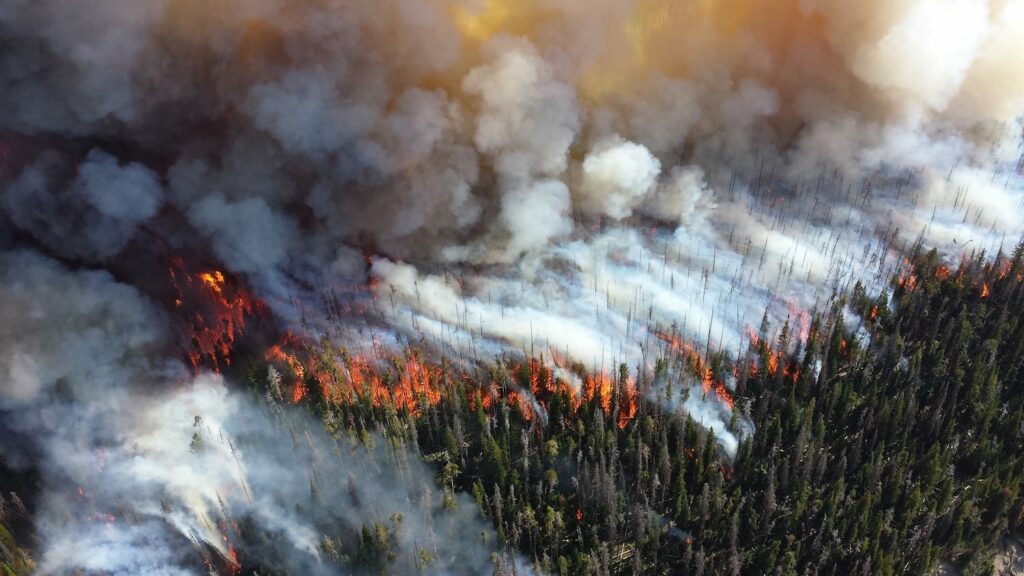The New York Times claims that “Climate Shocks Are Making Parts of America Uninsurable”: “This month, the largest homeowner insurance company in California, State Farm, announced that it would stop selling coverage to homeowners. That’s not just in wildfire zones, but everywhere in the state.” Climate shocks? Of course: “Insurance rates in California jumped after wildfires became more devastating than anyone had anticipated. A series of fires that broke out in 2017, many ignited by sparks from failing utility equipment, exploded in size with the effects of climate change. Some homeowners lost their insurance entirely because insurers refused to cover homes in vulnerable areas.” So the part where the government electric company didn’t maintain equipment, and government forest management created a tinderbox, is all your fault.
The insouciance of politicians over bad policy is quite remarkable here as elsewhere. As business of every sort flees California because of an across-the-board suite of policies so loony-left-disastrous that satire is also moving somewhere it can still make a living, the state governor’s response to firms literally abandoning hotels in lawless San Francisco is a constitutional convention to undo the Second Amendment. Such a person is unlikely to repent of bad forest management or unaffordable unreliable energy.
Vox peddles the same notion that it’s climate change not bad climate policy even more polemically, starting with “In a report published in April, California Insurance Commissioner Ricardo Lara admonished the industry to better account for far-reaching risks like those wrought by climate change.” But the actual text then tells a somewhat different story:
“State Farm announced last month that it will not accept any new applications for business or personal property and casualty insurance in the Golden State. The company, accounting for 20 percent of bundled home insurance policies and 13 percent of commercial policies in California, said it was facing ‘historic increases in construction costs outpacing inflation, rapidly growing catastrophe exposure, and a challenging reinsurance market.’”
Likewise, Allstate’s rationale is not the journalists’ rationale:
“‘The cost to insure new home customers in California is far higher than the price they would pay for policies due to wildfires, higher costs for repairing homes, and higher reinsurance premiums,’ an Allstate spokesperson told the Chronicle.”
Vox almost throws in the towel, saying:
“Human action is driving many of these risks. Real estate prices have been rising in California for decades, and populations are growing in the places most vulnerable to burning and flooding. Decades of suppressing natural fires have allowed fuel for wildfires to accumulate to dangerously high levels.”
But then it rallies with:
“Humans are also heating up the planet, lifting sea levels, amplifying downpours, and exacerbating the conditions for massive blazes.”
Because nothing exacerbates the conditions for fire like amplified downpours. Again, not even the IPCC actually claims any of these things are happening, and certainly not when it comes to the sea levels to explain refusal to insure in the interior of California. Plus if you did real actuarial math you’d know that once you adjust for growth in population and wealth, the cost of natural disasters around the world, and in the United States, has been falling for decades. And if you did real economics you’d know that the typical proposal, that the government start writing insurance policies private firms shun in order to encourage people to take risks that court disaster, will not improve the situation.
Given that obvious problem, the Times naturally supports doing so:
“California’s woes resemble a slow-motion version of what Florida experienced after Hurricane Andrew devastated Miami in 1992. The losses bankrupted some insurers and caused most national carriers to pull out of the state. In response, Florida established a complicated system: a market based on small insurance companies, backed up by Citizens Property Insurance Corporation, a state-mandated company that would provide windstorm coverage for homeowners who couldn’t find private insurance. For a while, it mostly worked. Then came Hurricane Irma.”
It would take some mental gymnastics to blame a 1992 hurricane on man-made climate change that became a crisis around 2002. And some more advanced ones to deny that if you protect people from the consequences of risky behaviour, you get more risky behaviour.
As Herbert Spencer put it with typical chilly bluntness, “The ultimate result of shielding men from the effects of folly is to fill the world with fools.” (Voting for them doesn’t help either.) Infamously including endless housing developments on floodplains where, amazingly, there are then floods that even more amazingly get blamed on climate change by people who can’t parse the portmanteau word floodplain and see that it’s a plain that floods.
Of course we never had weather before. Thus, the Times opines regarding Louisiana’s similar government-generated insurance mess that:
“In the past, it would have been possible for some communities – those where homes are passed down from generation to generation, with no mortgages required and no banks demanding insurance – to go without insurance altogether. But as climate change makes storms more intense, that’s no longer an option.”
Except that climate change is not making storms more intense, and if you have no insurance you are almost as big a fool as if you think that the Mississippi delta had no floods until the invention of the factory chimney.



Really, what's to do with people who have no sense of history, or if they do, actively shun it? It's all clickbait driving real world change, and all for the worse. We're in trouble.
Well,California keeps voting Democrat and Gruesome Newsom as governor,even after he faced recall.And the exodus out of that state by businesses and people continues.